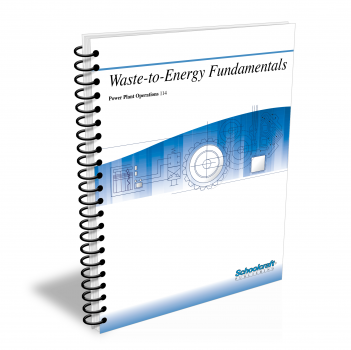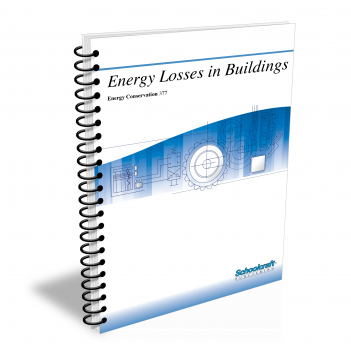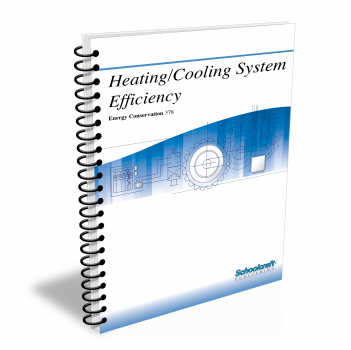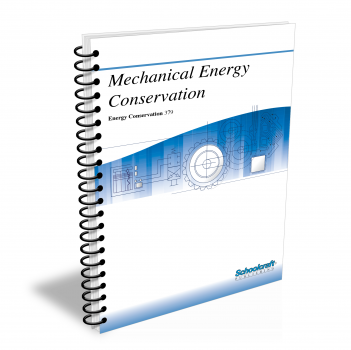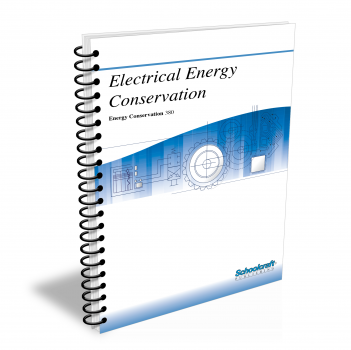Energy Conservation Basics
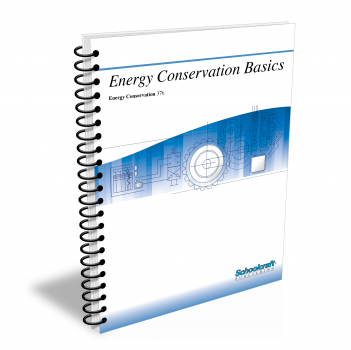
Course Number: 376
The Energy Conservation Basics textbook covers energy sources and the history of energy usage. It examines alternative energy sources and their feasibility, and current energy usage patterns and places where energy can be conserved. The textbook explains how to recognize energy waste, and includes sample corrective actions. It also explains how to conduct an energy survey.
Does your curriculum require additional topics not included in this textbook? Build a customized version of the Energy Conservation Basics textbook below.
Recommended Contact Hours – 10
Preview a Chapter
Available Supporting Material
- Table of Contents
- Exam Copies
- Suggested Titles
Table of Contents
Chapter 1: Energy and its Source
Topics: Energy; Fossil fuels; Nuclear power; Solar energy; Wind; Hydroelectric power; Evaluating energy sources; Measuring energy
Learning Objectives:
- Define energy and list several potential energy sources
- Explain how fossil fuels developed and how they are extracted from the earth.
- Explain, in simple terms, how uranium produces energy.
- List at least one advantage and one disadvantage of each of the following: oil, natural gas, coal, solar power, wind energy, and hydroelectric power.
- Tell how heat and temperature are measured (what units).
Chapter 2: Why the Energy Crisis
Topics: History of energy use; Fossil fuel reserves; Alternative and synthetic fuels; Gas and oil from coal; Nuclear fuels; Geothermal energy; Biomass
Learning Objectives:
- Define the fossil fuel age and list the energy sources that made it possible.
- Name some of the factors that contributed to the greatly increased use of fossil fuels in the past century.
- Describe the outlook for fossil fuel availability in the next century.
- Give examples of current efforts to develop alternative sources of oil and gas.
- Identify potential sources of future energy and describe their present limitations.
Chapter 3: Energy Consumption and Loss
Topics: Using fuel to generate electricity; Energy loss; Effects of climate on energy use; Degree-days; Cost of saving energy; ROI and payback period
Learning Objectives:
- Tell why generating electricity is an inefficient use of energy and what characteristics of electricity justifies this inefficiency.
- Compare energy use in the three categories of energy consumers.
- Explain degree-days and how they are used?
- State why a building's HVAC system is a good place to start looking for potential energy savings.
- Tell how to calculate the payback period of an energy conservation plan.
Chapter 4: Practical Conservation Measures
Topics: Recognizing and correcting energy waste in buildings, mechanical, and electrical systems; Energy conservation examples
Learning Objectives:
- Recognize energy waste conditions in building structures.
- Name at least three factors that affect boiler and furnace efficiency.
- Give examples of energy waste in a building's mechanical system and how it might be eliminated.
- Explain peak demand and why it is important in electricity costs.
- Tell how computer monitoring and control can be used to save energy and lower utility costs.
- Tell how computer monitoring and control can be used to save energy and lower utility costs.
Chapter 5: Conducting an Energy Audit
Topics: Audit tools; Sample energy audit; Fuel usage information; Building, equipment data; Conservation opportunities
Learning Objectives:
- Name and describe the six segments of a detailed energy audit.
- Define a mini-audit and tell when it might be used.
- List the tools required for an energy survey of any building.
- Record the data necessary to make up an energy audit.
- Explain the procedure for assigning priorities to energy-saving projects.
Request Exam Copies
Exam Copies
Ready to see a copy of our textbooks? After selecting which textbooks you’d like to review for your course, you can submit your request by either logging in or creating an account so we know where to ship your exam copies. A representative from Schoolcraft will contact you to confirm and finish processing your request.
Exam copies are always free and yours to keep.
Selected Exam Copies
none selected
* Maximum of five copies can be ordered
